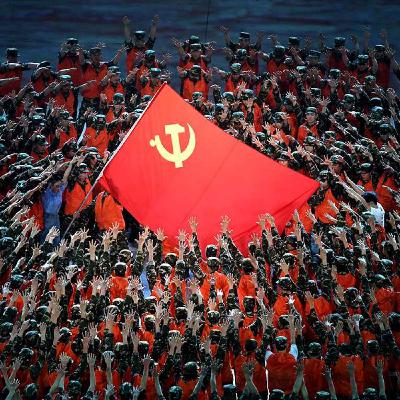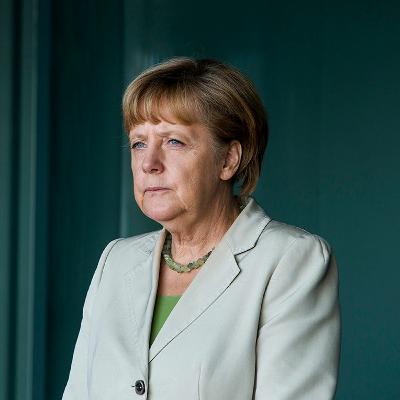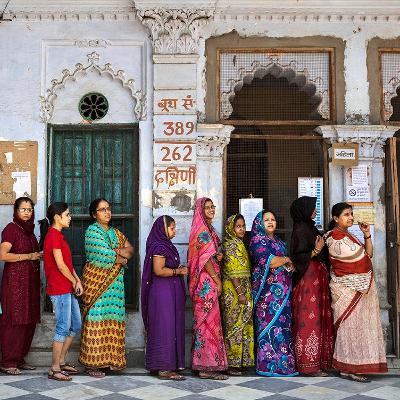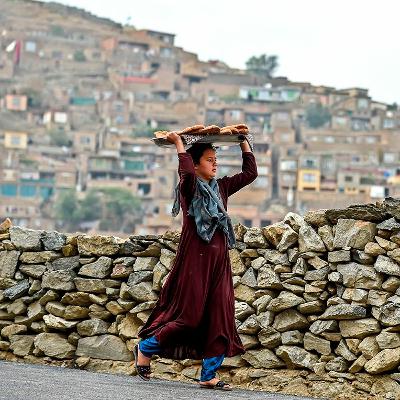Discover Opinion Has It
Opinion Has It

Opinion Has It
Author: Project Syndicate
Subscribed: 619Played: 11,181Subscribe
Share
© All rights reserved
Description
Opinion Has It by Project Syndicate features conversations with leading economists, policymakers, authors, and researchers on the world’s most pressing issues. Tune in for biweekly analyses and insights with our host Elmira Bayrasli, Foreign Policy Interrupted co-founder and Project Syndicate contributor.
Hosted on Acast. See acast.com/privacy for more information.
144 Episodes
Reverse
In the Sino-American great-power drama, Taiwan has taken center stage, as China has ramped up pressure on the island. How much danger is Taiwan in – and how far will the US go to defend it? Hosted on Acast. See acast.com/privacy for more information.
The unprecedented fiscal spending that many governments unleashed in response to the COVID-19 crisis has fueled an increasingly heated debate over the risks posed by public debt. But the debate is far from new, and history holds important lessons that should inform it. Hosted on Acast. See acast.com/privacy for more information.
The Taliban has announced its interim government, and its all-male, often-hardline makeup seems to have confirmed many observers’ worst fears. Why did the US mission in Afghanistan fail, and what is in store for the country under Taliban rule? Hosted on Acast. See acast.com/privacy for more information.
While elections alone don’t necessarily make a state democratic, they do offer a glimpse into the strength and legitimacy of a democracy. What can we learn from recent electoral outcomes? Hosted on Acast. See acast.com/privacy for more information.
After over a decade on the fringes of the global monetary system, digital currencies are increasingly being embraced by companies, governments, and citizens around the world. Are they set to become an integral part of the global monetary system? Hosted on Acast. See acast.com/privacy for more information.
The COVID-19 pandemic triggered the swiftest and most comprehensive contraction of global economic activity ever. With crises set to proliferate – not least because of climate change – the successes and failures of the pandemic response should serve as lessons for governments everywhere. Hosted on Acast. See acast.com/privacy for more information.
Twenty years ago, the September 11 terrorist attacks invigorated America’s sense of itself as the “indispensable nation.” But its actions since then have failed to improve global security and have endangered those who it claimed to be helping. Hosted on Acast. See acast.com/privacy for more information.
In 1971, President Richard Nixon closed the gold window, effectively ushering in a new global monetary non-system with a single pillar: the US dollar. Fifty years later, that pillar is showing signs of strain. Can the world muster the cooperation needed to manage whatever comes next? Hosted on Acast. See acast.com/privacy for more information.
With many low-paying jobs going unfilled, it seems that the COVID-19 crisis has forced a much-needed adjustment in a labor market where workers had long suffered from a decline in bargaining power. But, as pandemic-support programs end and automation accelerates, workers face serious risks. Hosted on Acast. See acast.com/privacy for more information.
Even when the world isn’t gripped by a pandemic, staging the Olympic Games can create serious problems for local populations. So, why do cities and countries keep seeking to host them?Here to help us answer this question is Jules Boykoff. Jules is an associate professor of political science at Pacific University in Oregon, and a former member of the US Olympic Soccer team. He’s the author of NOlympians: Inside the Fight Against Capitalist Mega-Sports in Los Angeles, Tokyo, and Beyond. Hosted on Acast. See acast.com/privacy for more information.
The Communist Party of China, founded a century ago, has been in power for more than seven decades – and it has big plans for the future. What do those plans entail, and is the Party still strong enough to implement them? Hosted on Acast. See acast.com/privacy for more information.
As German Chancellor Angela Merkel prepares to step aside after 16 years in office, Germany, Europe, and the world are entering a new, more uncertain phase – one that will be significantly shaped by her legacy. But which one?Here to help us answer these questions is Constanze Stelzenmüller. She holds the Fritz Stern chair on Germany and trans-Atlantic Relations at the Brookings Institution. Hosted on Acast. See acast.com/privacy for more information.
Since the end of the Cold War, the United States has been the world’s only superpower – a status ensured by the country’s powerful military. But great-power competition is making a comeback, raising questions about US preparedness.Michèle Flournoy is Co-Founder and Managing Partner of WestExec Advisors, a co-founder and former CEO of the Center for a New American Security, and a former US under secretary of defense for policy. Hosted on Acast. See acast.com/privacy for more information.
Despite major challenges, India’s multicultural democracy has thrived for more than 70 years. But can it survive Prime Minister Narendra Modi and his Hindu-nationalist agenda?Here to help us answer this question is Milan Vaishnav. Vaishnav is the director of the South Asia Program at the Carnegie Endowment for International Peace. He is the author of When Crime Pays: Money and Muscle in Indian Politics. Hosted on Acast. See acast.com/privacy for more information.
While critics say that the European Union has stumbled from crisis to crisis for most of its existence, its defenders counter that crises have made it both stronger and more necessary over time. As the bloc’s complex history and current challenges show, both claims are true.Niels Thygesen is an economist and an emeritus professor at the University of Copenhagen. He has spent more than a half-century observing and participating in the European integration process. As a member of the Delors Committee, he helped established the roadmap to Economic and Monetary Union, or EMU. This culminated in the introduction of the euro in 1999. Hosted on Acast. See acast.com/privacy for more information.
Popular protests and a tanking economy seem to be weakening President Vladimir Putin’s position, if not threatening his grip on power. Yet Russia’s strongman leader will not go down without a fight.Joining us today to help demystify one of the world’s most prominent dictators is Timothy Frye, the Marshall D. Shulman Professor of Post-Soviet Foreign Policy at Columbia University, and the author of the new book, Weak Strongman: The Limits of Power in Putin’s Russia. Hosted on Acast. See acast.com/privacy for more information.
US President Joe Biden’s public-investment proposal is undoubtedly ambitious – and highly controversial. But it may also be the key to putting the US economy on the path toward a more sustainable, equitable, and prosperous future.Here to help us understand the American Jobs Plan – and the debate surrounding it – is James Galbraith. Galbraith is an economist and professor of government at the Lyndon B. Johnson School of Public Affairs at the University of Texas at Austin. He is also the author of Inequality: What Everyone Needs to Know. Hosted on Acast. See acast.com/privacy for more information.
After 20 years and more than $2 trillion, the US is under growing pressure finally to withdraw from Afghanistan, leaving the country where it started: in the hands of the Taliban. What will this mean for Afghanistan’s people, their neighbors, and the world?Ashley Jackson is the co-director of the Centre for the Study of Armed Groups at the Overseas Development Institute. She is the author of the forthcoming book Negotiating Survival: Civilian-Insurgent Relations in Afghanistan. Hosted on Acast. See acast.com/privacy for more information.
This week in Outtakes, recent guest Jennifer Nuzzo, a senior scholar at the Johns Hopkins Center for Health and Security, explains why border closures aren’t an effective virus-containment strategy – and says what is. Hosted on Acast. See acast.com/privacy for more information.
Even if the world does manage to end the COVID-19 pandemic, we can’t simply breathe a sigh of relief and return to business as usual. With the number of new infectious diseases rising fast, the next pandemic could be just around the corner.Jennifer Nuzzo is a senior scholar at the Johns Hopkins Center for Health Security, and an associate professor at the Johns Hopkins Bloomberg School of Public Health. Hosted on Acast. See acast.com/privacy for more information.

























libs obsession with diversity yawn
rhino alert
give NYC and la more votes.. hell no
v wise man
the left stated this
tedious lefty bs